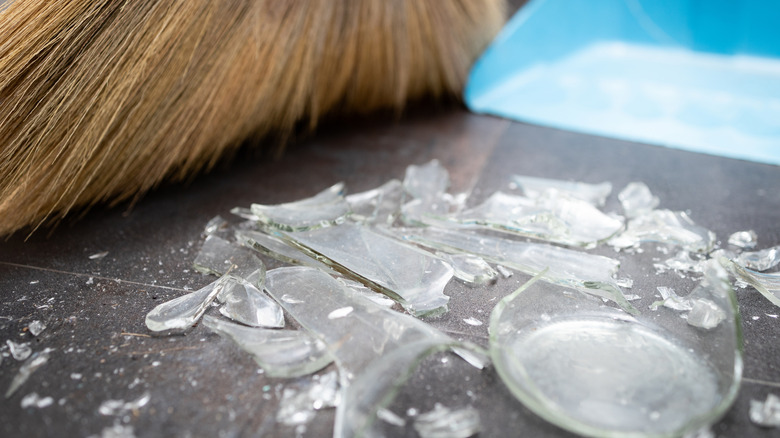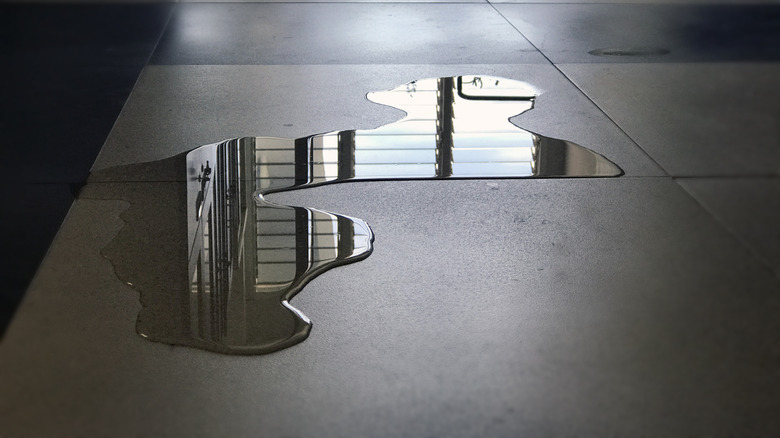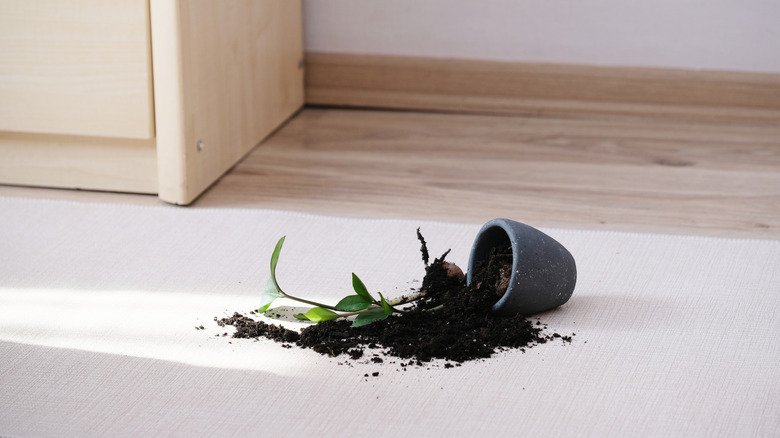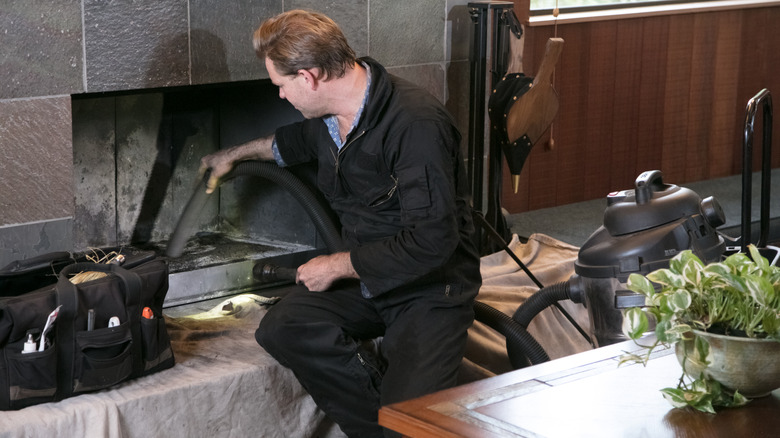5 Things You Should Always Avoid Vacuuming (And Why)
A vacuum cleaner is a handy tool to help you clean up a variety of messes that can occur throughout your house. However, you want to be careful about how you use it and what you clean up. Not everything can go inside a vacuum, and if it does, multiple problems can occur the more you use your favorite cleaning device. If something does break, it doesn't hurt to pick up another vacuum from any of the larger brands.
We'll be highlighting several messes that can appear throughout a standard household or workshop that you want to avoid when using a vacuum cleaner. In addition to discussing what to avoid, we'll explain what problems could happen if you decide to use a regular vacuum cleaner on these materials and substances. These issues include internal circuitry problems, power malfunctions, holes, and damage to the bag that could make your vacuum cleaner inoperable.
We will focus on traditional vacuum cleaners — the ones with a bag inside them — and not any robot vacuum brands. These bags are delicate, and while you can clean your carpets and floors throughout your house, some items require a broom and dustpan before bringing out a vacuum.
Glass
Left unchecked, glass can be a dangerous object when it falls onto the floor. Trying to clean it up can be a nightmare because it gets everywhere, and you might want to reach for a vacuum cleaner to make your life easier. However, for a regular vacuum, this is a good way to cause significant damage and send you to the store for a replacement.
When a vacuum sucks up these shards, it's increasing the speed of these sharp, jagged pieces. A vacuum typically has a bag that keeps all the debris, and these shards can cut through the bag, meaning anything inside a vacuum might start getting out whenever you use it moving forward. If these shards are small enough, it's possible to get inside the motors, causing a vacuum to malfunction when you turn it on. You're better off using a broom and wiping up an area with a thick, wet cloth to pick up these small shards, ensuring you don't cut your hands.
Alternatively, shop or wet/dry vacuums are capable of picking up these pieces, and we've ranked every major shop vacuum brand from worst to best. You should also check your vacuum's owner's manual to see if the manufacturer has cleared your model to collect glass.
Any liquid
Spilling a liquid on the floor or having a leak occur somewhere in your home is a real hassle. Rags and paper towels might be inadequate, but they are much better than a regular vacuum cleaner, which may malfunction if tasked with even a minor spill.
Simply put, most vacuum cleaners are not designed to contain fluid. When a regular vacuum soaks up liquids, these can soak into the internal bag and potentially destroy it — and that's if you're lucky. The contents of the bag could also begin to leak out, mixing with the other materials inside that you've been using with the vacuum. Furthermore, the vacuum's internal components could get covered in whatever liquid you're cleaning up, leading to overheating and other problems.
Even if you have a hose attachment for your vacuum, don't use a regular one to clean up water or any other liquid that spills on the floor. There are specialized vacuums that you can get that are capable of tackling this problem, like a shop vac when you want to unclog a drain.
Plant debris
Household plants or having a garden outside your patio door can invite small messes to build up throughout your home. You might think reaching for a vacuum is a good idea, but this is a good way to impact the internal integrity of these devices. Not only can these particles cause problems inside your vacuum, but anything that gets stuck inside your vacuum could cause problems as you continually use it.
When cleaning up any plant debris, there's a chance the leaves might get stuck in the bag when you empty it. These remnants are likely to break up, and the moisture within them may soak the vacuum's internal components. It's similar to using it on water, although a slower process. The same occurs for any soil or dirt you want to vacuum. If the dirt is wet enough, pushing it into a carpet using your vacuum could cause stains that are tough to get out. Additionally, these dirt particles are small, but they can clog up your vacuum's parts over time. There's always the chance that a well-sized pebble in this debris could get sucked up fast enough to cause a hole or damage your vacuum's bag.
For anyone looking to get a vacuum to clean up messes caused by outside debris, hand vacuums without a bag are a good way to get the job done.
Coins and small objects
It's easy to lose coins, small toys, or tiny items throughout your home, only to discover them in a corner covered in dust when you're cleaning up. You might think that these small things can go into your vacuum cleaner and you'll throw them out later, but these items can harm your vacuum. It might be inconvenient, but you're better off sweeping these items up into a dustpan before vacuuming the area.
If you can pick an item up with your hand, you should avoid vacuuming it. If such items get sucked up, there's a chance they can clog the machine, impairing its function. If they're large enough, they might make it in the vacuum cleaner, but there's a possibility they could get lodged in the internal tubes before reaching the bag, making it difficult to continue using. There's a chance an object can head straight into the bag and damage it.
You're better off sweeping these objects off the floor or using a stronger vacuum cleaner if you're regularly running into these objects.
Fine powders or ash
Be careful with delicate substances like ash, particle wood dust, or even baking soda. It's a mess to clean them up by hand, but using a traditional vacuum cleaner is not the solution. These are dangerous for a vacuum to suck up due to how tiny these particles are, and the fact that they get everywhere.
When a vacuum cleaner with a bag sucks up these contents, they fly inside and can cause trouble. These particles are small enough to bypass a vacuum's filter and damage the internal motor. Those are the tiny holes you see in the vacuum bag whenever you're swapping an old one out for a new one. Those particles get right through those holes and cause a heap of damage to the internal components of a regular vacuum cleaner. If enough of these particles cover the motor, the vacuum could slowly lose its quality, and there's a chance it could overheat the more you use it.
A regular vacuum cleaner is not designed to pick these up. You're better off using a shop or a heavy-duty vacuum cleaner. Also, you might want to invest in switching to a smart tech gadget to help clean your home.





